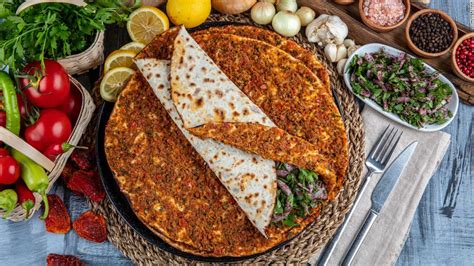Turkey, a nation straddling two continents, is as rich in its cultural heritage as it is in its contributions to global trade. Known for its strategic geographical location connecting Europe and Asia, this country’s economy boasts a diverse range of exports that are making a significant mark on the world stage. In this blog post, we will delve into the ‘Best Exports from Turkey,’ shining a light on the top products that have cemented Turkey’s standing as a powerhouse in international commerce. From the impact of its key exports to the luxurious threads of its burgeoning textile industry, and from the robust engines of its automotive sector to the sumptuous flavors of its food and beverage offerings, we’ll explore the goods that are propelling Turkey’s economic ascent. And we mustn’t forget the alluring sparkle of Turkish jewelry, whose global appeal reflects the country’s age-old tradition of exquisite craftsmanship. Join us as we uncover the treasures that Turkey shares with the world.
Titles
Top 5 Turkish Exports and Their Impact
Turkey, standing at the crossroads of Europe and Asia, has a diversified economy that exports a range of goods to the international market. Amongst the numerous commodities, the automotive industry leads the Turkish export sector. The country has become an essential player in the global automotive market, importing advanced technology and exporting a multitude of vehicles, parts, and machinery. The income generated by this sector significantly elevates the national GDP, emphasizing Turkey’s strategic role in feeding the global demand for quality vehicles.
Following closely is the textile and apparel industry, widely reputed for its high-quality materials, designs, and craftsmanship. Turkish textiles are intrinsically intertwined with the country’s cultural heritage, and through innovative blending of traditional craftsmanship with modern technology, the industry has marked its presence in international fashion markets. By embracing sustainable and eco-friendly practices, Turkish textiles now cater to the growing global consciousness of ethical fashion, potentially leading to a worthwhile increase in economic gains and job opportunities within the nation.
The third vital export that has put Turkey on the global map is the steel industry. Turkey’s position as a key steel exporter is nurtured by its increasing production capacity and strategic geographical location, which provides a logistic advantage in reaching various markets. Turkish steel, known for its reliability and quality, is used in construction, automotive, and machinery sectors around the world, thereby propelling forward economic development and underlining Turkey’s potential as a manufacturing powerhouse.
Furthermore, Turkey is renowned for its agricultural exports, including a myriad of products such as hazelnuts, cherries, figs, and olives. The agricultural sector is not just a source of sustenance; it represents a backbone for rural development and employment. As a consequence, the sustained export of these goods bolsters Turkey’s economic stability and enhances the strength of rural communities. Food processing is also a growing segment, adding value to agricultural produce and cementing Turkey’s position as a vital contributor to the global food supply chain.
Growing Demand for Turkish Textiles in Global Market
The global market has been witnessing a significant surge in demand for Turkish textiles, a sector renowned for its rich history and commitment to quality and sophistication. This growing demand is not just a testament to the aesthetic appeal of Turkish designs, but also to the robustness of Turkey’s industrial capabilities in weaving, dyeing, printing, and finishing of textiles. Brands and designers across the world are increasingly turning to Turkey for their sourcing needs, drawn by the country’s quick turnaround times, competitive pricing, and the ability to handle both large and bespoke orders with exceptional craftsmanship.
Underpinning this upward trajectory is Turkey’s strategic geographical location, acting as a bridge between East and West, which facilitates easy access to key export markets. Moreover, the country’s investments in sustainable practices and innovation within the textile industry are further enhancing its appeal on the international stage. Market observers report that environmental consciousness within the global textile industry is on the rise, and Turkish manufacturers have been quick to adopt eco-friendly methods and materials, thereby attracting environmentally conscious consumers and businesses alike.
In response to the growing international appetite, Turkish textile producers are expanding their reach, embracing e-commerce and participating in global trade events to showcase their products. The remarkable blend of traditional techniques with contemporary styles is encapsulating the interest of global buyers, making the Turkish textile export sector one of the most dynamic segments of its economy. Whether it’s high-quality cotton, luxury bath linens, elaborate lace, or innovative functional fabrics, the range and quality of Turkish textile products on offer have secured a place for Turkey in the wardrobes and homes around the world.
Fiscal incentives and supportive governmental policies are also playing a crucial role in fuelling the textile industry’s growth and its export potential. With ongoing investments in textile technology and infrastructure, Turkey eyes maintaining and advancing its competitive edge in the global market. As a result, more international designers and textile importers are citing Turkey as a top sourcing destination, a clear indication that the burgeoning demand for Turkish textiles is not a transient trend but a long-term pivot in global textile trade dynamics.
An In-depth Look at Turkey’s Automotive Export Industry
The Turkish automotive export industry stands as a significant pillar of the country’s economy, reflecting the synergy of robust manufacturing capabilities and extensive market outreach. With the industry’s production quality receiving worldwide recognition, Turkey has solidified its status as a key player in the international automotive sector, routinely featuring among the top export industries in the region. The profound expertise and competitive overhead costs have supported the industry’s rapid expansion and attrition of a global clientele.
As Europe remains the chief destination for Turkish automotive exports, there’s a discernible shift in the industry’s strategic operations with an increasing focus on electric vehicles (EVs) and sustainable manufacturing processes. This evolution is a testament to Turkey’s dynamic industrial fabric and its capacity to innovate in response to global trends. The country’s export portfolio showcases a diverse range of products, including passenger cars, buses, trucks, and an expanding inventory of electric and hybrid models that address the growing environmental concerns and regulations overseas.
A paramount part of the automotive export industry’s success lies in the favorable governmental policies, such as investment incentives and free trade agreements, which have been instrumental in bolstering the competitiveness of Turkish automotive products on the world stage. Additionally, the strategic geographical positioning of Turkey as a bridge between Europe and Asia offers logistical advantages that contribute significantly to the cost-effectiveness and efficiency of the export supply chain.
Beyond the tangible assets of state-of-the-art facilities and a skilled workforce, Turkey’s commitment to quality and innovation is underlined by the industry’s substantial investments in research and development (R&D). Automotive manufacturers in Turkey are not only fulfilling the global demand for vehicles but are also shaping the future of automotive technology by aligning with cutting-edge trends, making Turkey a landmark hub for the automotive industry in the years to come.
Exploring the Success of Turkey’s Food and Beverage Exports
The food and beverage sector of Turkey stands out as a prominent player in the global export market, consistently showcasing a vast array of products reaching a multitude of countries. Turkish exports in this sector have climbed the ranks, displaying significant growth, both in terms of volume and diversity. Delving into the details reveals the intricate balance of traditional practices and modern techniques that have propelled these exports to success, illustrating the country’s ability to adapt and thrive within competitive international markets.
A crucial factor in the success story of Turkey’s food and beverage exports is the innate emphasis on quality and sustainability. The rise to prominence has not just been about the quantity shipped abroad, but the reputation for high-caliber products that adhere to international health and safety standards. This strategic focus has enabled Turkish exporters to forge long-term relationships with foreign markets, ensuring that the nation’s delicious and healthful food items make a lasting impact and continue to stimulate demand.
Among the shining stars of Turkey’s export landscape, certain products have gained exceptional acclaim and demand. Take, for instance, Turkish dried fruits and nuts, renowned for their rich flavors and nutritious value—these products have become virtually synonymous with quality snacking options around the world. Moreover, the export of Turkish olive oil has made an indelible mark on the international culinary scene, prized for its purity and the traditional methods used in its production.
Furthermore, the adaptability of Turkish producers in integrating cutting-edge technology into their operations has also played a pivotal role in sustaining the growth of the nation’s food and beverage exports. This embrace of innovation affirms Turkey’s commitment to evolving alongside the global market, continuously enhancing product quality and operational efficiency. Behind the flourishes of economic success lies not only the bounty of the Turkish land but also the cultivated expertise of its people, making the country’s food and beverage exports a testament to its fruitful marriage of heritage and progress.
Turkish Jewelry: Exquisite Craftsmanship Goes Global
Turkish Jewelry has long been revered for its unparalleled craftsmanship and artistic flair, making its mark on the global stage with exquisite designs that embody centuries of cultural heritage. The intricate details and the usage of high-quality materials like gold, silver, and precious stones have garnered an international clientele, seeking unique pieces that are both timeless and culturally rich. As such, the export of these fine items plays a significant role in Turkey’s economy, illustrating the country’s ability to blend traditional techniques with contemporary fashion trends.
The global demand for Turkish jewelry reflects not only the aesthetic appeal of these creations but also the skilled labor and dedication behind each piece. Exporters have taken note, expanding their reach to international markets and showcasing their wares in renowned jewelry exhibitions around the world. This expansion has not only bolstered Turkey’s economy but has also introduced the world to the intricate designs inspired by Ottoman motifs and Anatolian symbols, threading a narrative of Turkey’s rich history through each wearable piece of art.
Behind the scenes, the art of creating Turkish jewelry extends beyond mere accessory-making, as it involves a meticulous process where craftspersons often employ age-old techniques passed down through generations. The result of such expertise is jewelry that goes beyond mere adornment and becomes a symbol of prestige and luxury. Consequently, each jewel tells a story, representing both personal expression and cultural identity, making it a cherished possession for both the domestic connoisseurs and international aficionados alike.
As Turkish jewelry continues to captivate global markets, it underlines the country’s prowess in preserving its cultural legacy while carving a niche in the global luxury goods sector. It is this combination of historic craftsmanship and modern entrepreneurial spirit that positions Turkey at the forefront of the international jewelry scene, promising a glowing future for its antique-inspired yet fashion-forward adornments.






